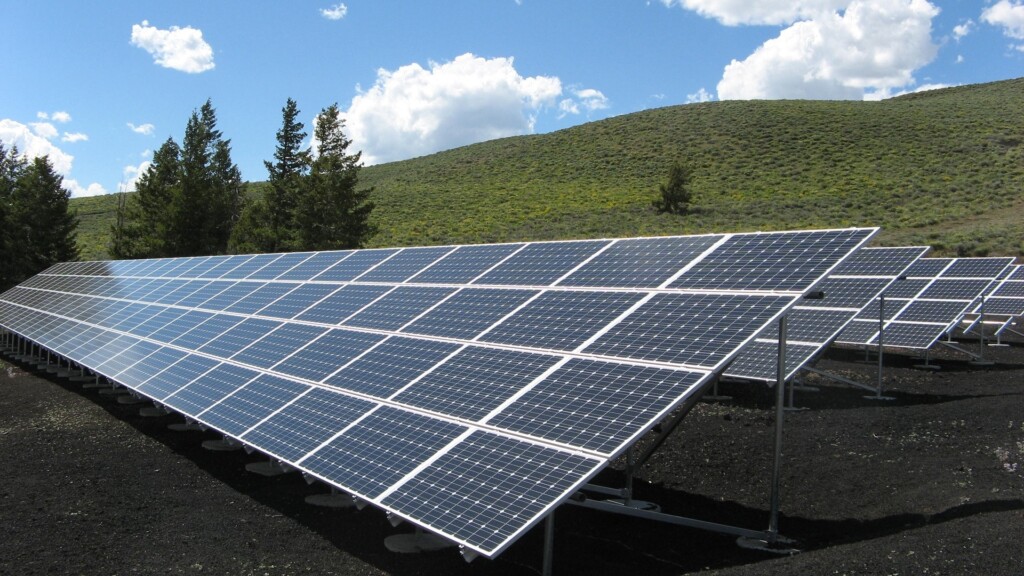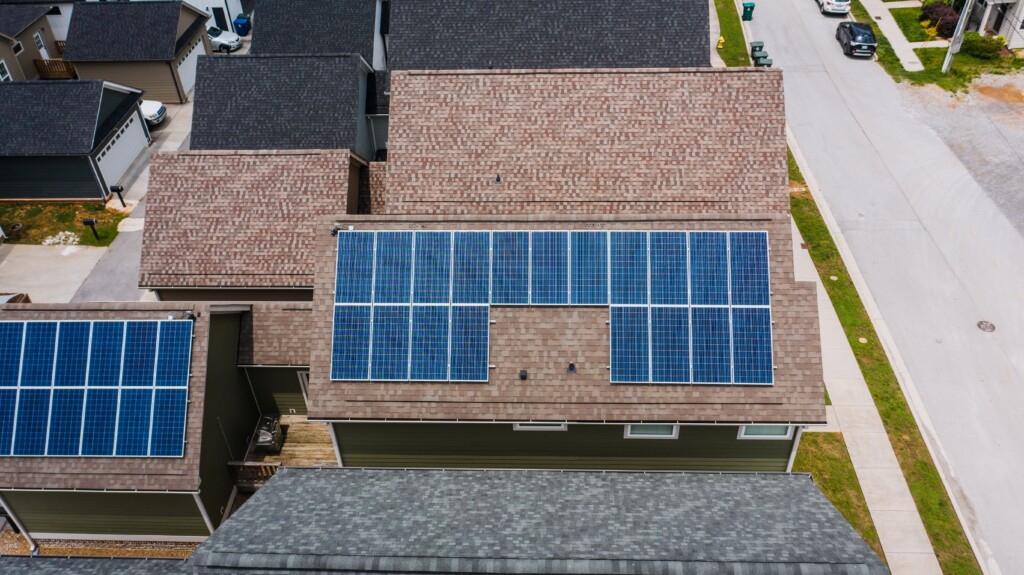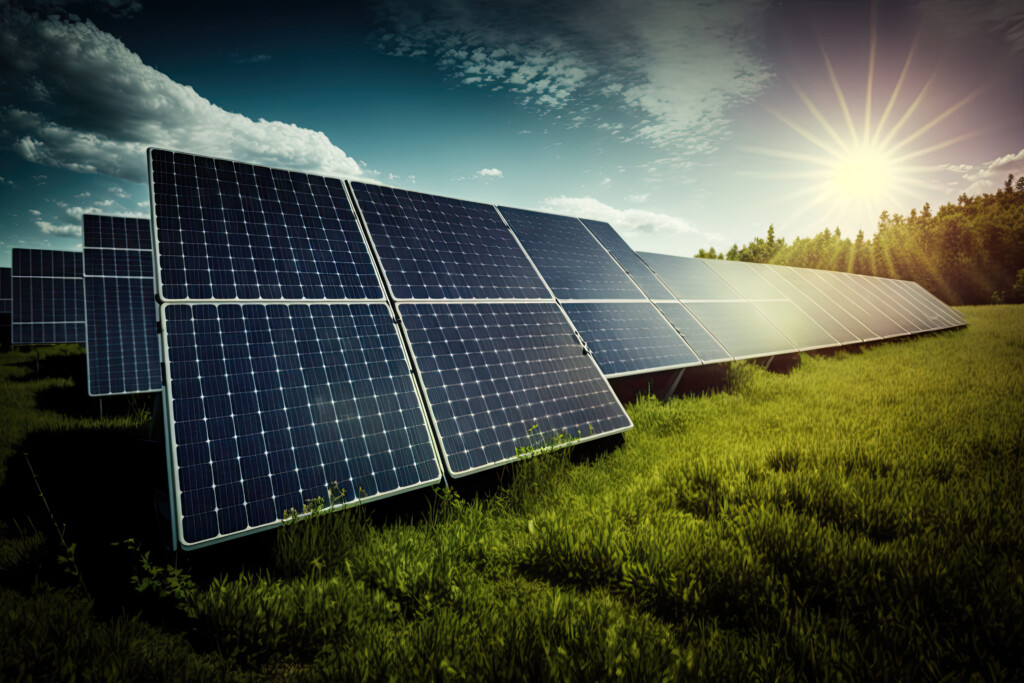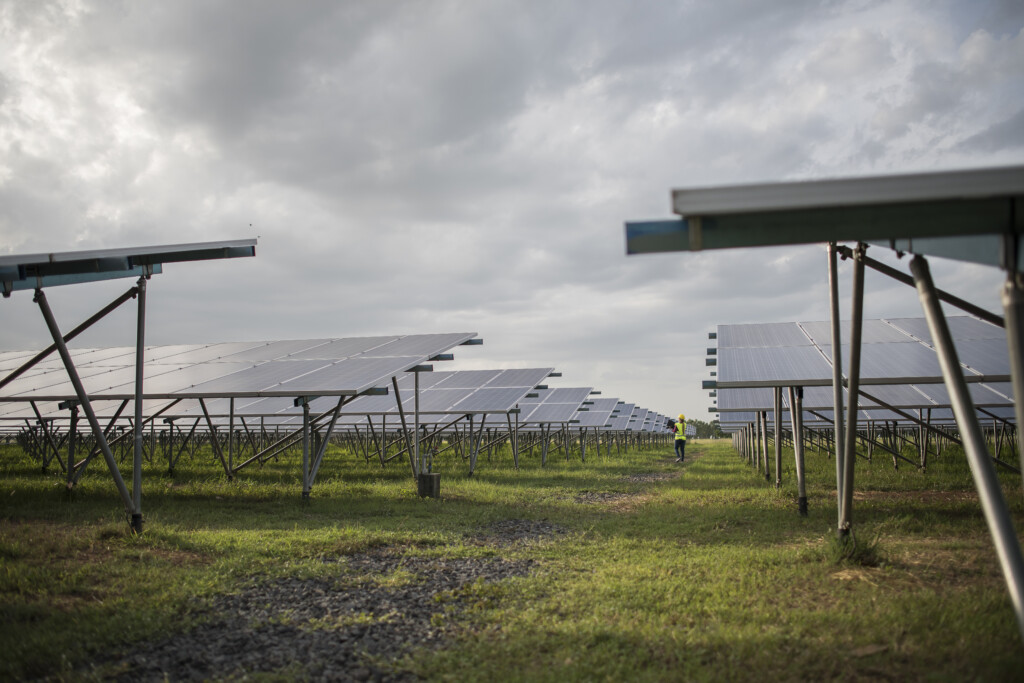As we explore different methods of reducing our carbon footprint, there’s one source of energy that has been shining brightly for billions of years, even before the existence of humans – solar energy. This renewable and sustainable source of energy has become the cornerstone of the green energy movement. Let’s examine the pros and cons of solar power to better understand its implications.
Solar energy is the energy we get from the sun. The sun has produced energy for billions of years and is the most abundant source of energy we have available to us. We harness this energy in various ways with a variety of technologies, helping us substitute traditional energy sources and reduce carbon emissions significantly. With zero fuel costs and minimal operating costs, it’s a serious contender in the race to provide affordable, reliable, and clean energy.
Harnessing the power from our abundant celestial partner, the sun, offers us a potent form of energy that unravels itself in multiple quantum aspects. Through the marvels of technology, this energy can be leveraged in two primary ways that each have a tremendous impact on our transition towards renewable energy sources.
The first technology, known as Photovoltaic solar, navigates the direct conversion of sunlight into electricity. This process is achieved with the help of carefully arranged panels made up of solar cells. Considered the de facto solar technology, it’s regularly found adding value to homes and businesses alike.

The second technology, termed Solar thermal, presents a unique application of the sun’s energy. It effectively exploits solar energy to spawn heat, creating warm environments, be it for a cozy home, a lively swimming pool, or complex industrial processes.
In essence, both of these leading-edge technologies put the sun’s power to excellent uses in different, yet equally transformative ways. This demonstrates the versatility of solar energy as a crucial pivot in the gravitational swing towards our renewable energy mix.
When it comes to alternative sources of energy, it’s hard to top the benefits of solar energy. Not only does it provide a seemingly endless supply of power, but it also offers significant environmental advantages over traditional energy sources.
Focusing on the impact of greenhouse gas emissions, it’s clear that the use of solar energy can make a significant difference. In stark contrast to fossil fuels, which discharge detrimental gases into our atmosphere, solar panels confine clean energy. This is achieved by harnessing and converting the power of sunlight into electricity, contributing to an eco-friendlier environment.

Another pivotal factor to consider is our reduced reliance on fossil fuels. The truth of the matter is that fossil fuels, as finite resources, are rapidly depleting. Moreover, their extraction is often disruptive to ecosystems. On the other hand, making the transition to solar energy heralds the key to a sustainable, reliable energy future. It’s a shift that’s not just about the here and now, but about a legacy for generations to come.
Talking about carbon footprint, solar energy holds immense potential. Electricity production, a leading source of greenhouse gas emissions, places an undeniable strain on our planet. By making the switch to solar energy, both individuals and businesses have the power to reduce their carbon footprint significantly. Strikingly, solar panels do not release carbon dioxide or other harmful pollutants during operation.
And let’s not forget the critical role of preservation of ecosystems. Many conventional energy extraction methods lead to serious habitat disruption, threatening the balance of life on Earth. Solar panels, however, offer an alternative solution. They can be installed in a diverse range of locations with minimal impact on the environment. This invaluable technology not only meets our energy needs but also contributes to the preservation of our precious ecosystems.
☀️ Implementing solar energy helps to preserve the earth by protecting its ecosystems, reducing carbon footprint, and decreasing the dependency on fossil fuels. That alone makes a compelling case for why more businesses and individuals should switch over to this greener option.

If you’re considering switching to a more sustainable source of energy, here’s some information that might just tilt the scales for you. We’ll be focusing on the economic advantages of harnessing solar power, a source of energy that’s not only renewable but can offer significant financial perks.
Over the past decade, the proliferation of solar panels on rooftops has hugely surged, primarily owed to the decisive reduction in their cost and installation expenditure. This remarkable shift can largely be accredited to the refreshing advancements characterizing the renewables technology sector. In fact, according to research from the National Renewable Energy Laboratory, solar installation costs have seen a substantial diminution of 70% in the past decade.
The precipitous downward trajectory in solar panel prices can be explained largely due to the effects of mass production, pivotal technological innovation, and the sustained drop in manufacturing costs. As more solar installers enter the market, there is a resulting competitive landscape offering a greater variety of options. Enhanced by the allure of government incentives like tax credits and rebates, the cost of transitioning to solar energy has been noticeably decreased.

Imagine almost eliminating your energy bill – sounds delightful, doesn’t it? Indeed, solar energy offers you this potential benefit. The sun is an unlimited, free resource that you can tap into for electricity, which translates into significant cost savings every month. When you install solar panels, they convert sunlight into electricity that powers your home. These solar systems have become more accessible and affordable in recent years, thus providing a practical solution for many homeowners who are fed up with high energy bills.
Investing in solar energy brings about a few significant benefits. To begin with, lower energy bills tend to follow the initial investment in solar panel installation. It’s true that your energy-related costs drastically decrease. While the amount you save on your power bill can vary based on your location and the amount of sunlight your home receives, the overall savings can be significant.
Next, there’s an advantageous system known as net metering available in some regions. This allows you to receive credits for any excess solar power you generate and feed back into the grid. These credits can come in handy to offset your electricity costs during times when your solar panels aren’t operating, like at night or when it’s cloudy.
Additionally, the government’s effort to promote clean energy has led to a boost in tax credits and incentives for solar energy adoption. These can further reduce the overall costs of your solar panel system, leading to even more savings over the lifespan of your system.
🔆 Regardless of your home’s size or location, the efficiency of today’s solar panels allows you to generate a considerable amount of power, drastically reducing—if not eliminating—your reliance on external electricity providers, vastly improving your financial bottom line.
Remember, installing solar panels is an investment. It might require an initial outlay that might seem costly, but given the impressive long-term savings on electricity bills, it’s worth considering.
Looking to boost your home’s value? Think solar panels. Unlike usual home upgrades, these panels offer more than just a sustainable touch. They can also lead to financial benefits in the long run. Imagine fitting your home with solar panels. To many, this reflects a wise financial choice, as homes with solar often fetch higher market prices. Besides cutting down electricity bills, some locations and programs even offer the chance to earn money from your solar setup.
Beyond the money aspect, solar panels make homes more energy-efficient. They lessen the dependence on traditional power sources, appealing to those wanting to cut costs and reduce their carbon footprint. As more people turn to green energy solutions, solar-paneled homes are becoming increasingly popular. It’s not just about getting electricity; it’s about aligning with a forward-thinking approach to energy. Some even say that soon, not having solar might be as unusual as not having a cellphone. And while setting up solar might seem pricey initially, it’s a long-term investment that promises to pay off.

The solar industry is rapidly becoming a leading sector for job opportunities. As solar adoption grows among homeowners and businesses, the demand for skilled professionals in various roles has surged. There are designers and engineers responsible for creating plans. Their primary task is to design and integrate solar systems into existing infrastructure, ensuring efficient connection to power grids. Installation professionals are on the frontline, tasked with setting up panels on rooftops or solar farms. Their expertise ensures that systems are properly fitted and optimally positioned to capture sunlight.
Inside factories, production and assembly workers handle the construction of solar panels. They assemble the necessary components, ensuring each panel is built to capture and convert sunlight efficiently. Maintenance workers play a crucial role post-installation. Solar systems, once installed, need regular checks to ensure they operate at peak efficiency. These workers often possess skills in electronics, diagnosing any potential issues and making necessary repairs. Recent data, like that from The Solar Foundation, reinforces the sector’s growth. In 2015, the solar industry added jobs at a rate significantly faster than the broader U.S. economy. This trend showcases the increasing significance and promise of the solar industry in the job market.
When it comes to energy sources, reliability and independence play a crucial role. Let’s delve into how solar energy stands on these fronts.
When we talk about the significance of solar energy, one advantage that stands out is its potential to lessen our dependence on foreign energy. Firstly, when you choose to employ solar energy systems in your home or workplace, you inherently decrease the need for energy imports. This results in greater energy security. It shifts the narrative and places the power (quite literally!) in your hands. Within your reach, you now have a self-sufficient energy solution, cutting ties with the uncertainties of foreign energy dependencies.
Secondly, let’s consider the source of this energy. When you embrace solar power, you make a deliberate choice. You opt for unlimited and renewable energy resources over the finite, and often environmentally damaging, fossil fuels. Not only does this choice echo a commitment to sustainability, but also ensures an endless supply of power. So, in using solar energy, you embrace self-sufficiency in your power needs and simultaneously contribute to reducing the nation’s dependence on foreign energy. It’s a win-win situation – a step towards individual autonomy and crucial progress for national energy security.
Have you ever thought of the power of running your local community with clean energy, sourced right from your own environment? This is the fundamental idea behind decentralized power sources.
The primary benefit of decentralized solar power generation is the creation of a flexible energy system. In other words, solar energy enables households and businesses to generate their own power right where it’s needed. This reduces the need for large, centralized power plants and extensive transmission lines. Imagine every building transforming into a mini power plant. That’s one of the remarkable possibilities when you get solar panels installed. This development significantly discourages the occurrence of debilitating power outages, such as blackouts and brownouts. The shift is not just transformative, but it brings about noticeable stability.
Now, let’s talk about a diversified power grid. This setup consists of multiple solar generators, each operating independently. What’s the edge of having this variety, you might ask? These installations greatly mitigate the risk of catastrophic system failures. This is simply because a failure at one location doesn’t disrupt the entirety of the network. A profound advantage, don’t you agree?
Solar energy, through decentralized systems, not only boosts grid resilience but also brings a sense of energy independence. By decentralizing power, any damage inflicted on a single panel or small group has a minimal effect on the overall power supply. This ensures dependable energy supply even in the face of disasters or system failures. Hence, a robust and resilient energy grid that upholds both energy security and sustainability.

Harnessing the energy of the sun, solar energy provides a renewable, sustainable and, importantly, predictable source of power. Mitigating the unpredictable nature of renewable energies, advancements in solar forecasting have significantly improved the reliability of solar power generation.
This makes it possible to accurately predict the amount of power that solar panels will generate, benefiting both residential users and grid operators. For you, this means better energy planning and potential surplus energy sales. For grid operators, it aids in balancing the grid load, thus enhancing the overall efficiency of energy use.
Embarking on the switch to solar energy requires serious consideration and analysis of both the pros and cons. While solar energy reaps numerous benefits, there are also notable drawbacks that are impossible to ignore. Let’s delve into some of these salient disadvantages in more details.
One of the first things you might wonder about solar energy is what happens when the sun isn’t always shining. This is known as variability and intermittency, and it’s a top concern when we discuss solar power’s viability as a reliable energy source.
The truth behind this matter is no energy source is perfect, and just like its counterparts, solar energy also poses a few challenges. One of these is the fact that we can’t produce solar energy all the time. After all, the sun doesn’t shine 24/7.
In order to overcome this issue, we utilize what’s known as energy storage solutions. These are strategies and devices that allow us to store excess solar energy produced when sunlight is plentiful (like during the middle of the day) to be used when it’s not (like during the night).
Incorporating energy storage can certainly buffer against the problem of variability and intermittency, but these solutions also come with their own set of limitations. Some challenges we face with energy storage solutions include:
Next, let’s discuss the space requirements for large solar farms. We’re not talking about a few solar panels on a rooftop, but utility-scale operations. To produce large amounts of solar energy, massive spaces are needed. Space is prime real estate when it comes to solar energy.
Solar farms can certainly offer a solid solution for our expanding energy needs. These installations can turn sunlight into electricity on a significant scale. However, they also require a considerable footprint. This could be an important factor in densely populated areas where open space is precious and hard to come by.
In conclusion, as great as solar energy is, it’s important to remember that like all things, it also has its up and down side. From variability, to current energy storage solutions limitations, and space requirements for large solar farms, these are all aspects we need to consider when talking about solar energy.

While the benefits of solar energy are recognizably substantial, it’s imperative to consider the flip side of the coin as well. You may stumble upon specific economic and aesthetic concerns attributed to the adoption of solar energy systems.
Initial Investment: One major drawback of solar panels is the financial burden the initial setup places on homeowners. It’s somewhat akin to a long-term investment, as the benefits, although substantial, can take several years to materialize into significant savings. However, it’s worth noting that the initial expense, while seemingly daunting for many homeowners, can be mitigated by various financial incentives and tax credits available, thereby reducing the overall cost of the setup.
Aesthetic Concerns: Another drawback lies in the aesthetic changes that solar panels may impose on homes. This is of particular concern in regions where the landscape or historical architecture might clash with the modern, industrial look of solar panels. However, bear in mind that with the rapid advancements in technology, newer and more aesthetic designs are being developed. These modern designs are less obtrusive and more harmonious with a wider range of architectural styles.
Integration Challenges: The transition to solar power also entails having to navigate some structural challenges, particularly if the prevailing energy infrastructure is not compatible with solar power. For instance, integrating solar energy with existing grid networks can be complex as it often necessitates significant upgrades or modifications. Despite these challenges, technological advancements continue to simplify the process significantly, ultimately making solar power more accessible.
As we witness the rapid evolution of renewable energy, solar power emerges as a promising contender in this space. Understanding its growth trajectory, impact and potential, we delve into a few key aspects below:
Advancements in solar technology are burgeoning. As the energy sector continues to innovate, we witness the advent of concentrated solar power systems which harness sunlight directly, drastically improving efficiency levels. Furthermore, ongoing development of efficient, cost-effective storage solutions like lithium-silicon batteries are set to revolutionize the future of solar energy storage.
Solar power plays a significant role in the global energy mix. As per the International Energy Agency (IEA), solar accounted for approximately 12% of global electricity generation in 2022, a figure expected to rise significantly owing to increased installations. Not only does solar reduce reliance on fossil fuels, but it also helps to diversify the energy supply, making us less susceptible to energy price fluctuations.
Government policies and subsidies have been game-changers in propelling the solar energy sector. For instance, the federal Investment Tax Credit in the US allows consumers a tax credit of 26% of the cost of a solar panel system. Globally, commitments like the Paris Agreement, which aim for a reduction in carbon emissions, have served as catalysts to boost investment and innovation in the solar energy sector.
While challenges remain, the solar industry stands poised at the threshold of a promising future, driven by evolving technology, an expanding role in the energy mix, and favorable government policies. With concerted efforts, we inch closer to a fully renewable and sustainable future.
Stay a while and read more posts like this
In recent years, Europe has witnessed a remarkable surge in the adoption of solar panels, marking a pivotal shift towards renewable energy. Data from the...
Renewable Energy, Solar Energy, Solar Energy Basics, Solar Technology
“Unlock the Truth: Get the Facts on Solar Energy!” Introduction Solar energy is becoming increasingly popular as a renewable energy source, but there are...
Imagine a world where you’re able to cut your monthly energy expenditure substantially. A reality where your home isn’t reliant on finite,...